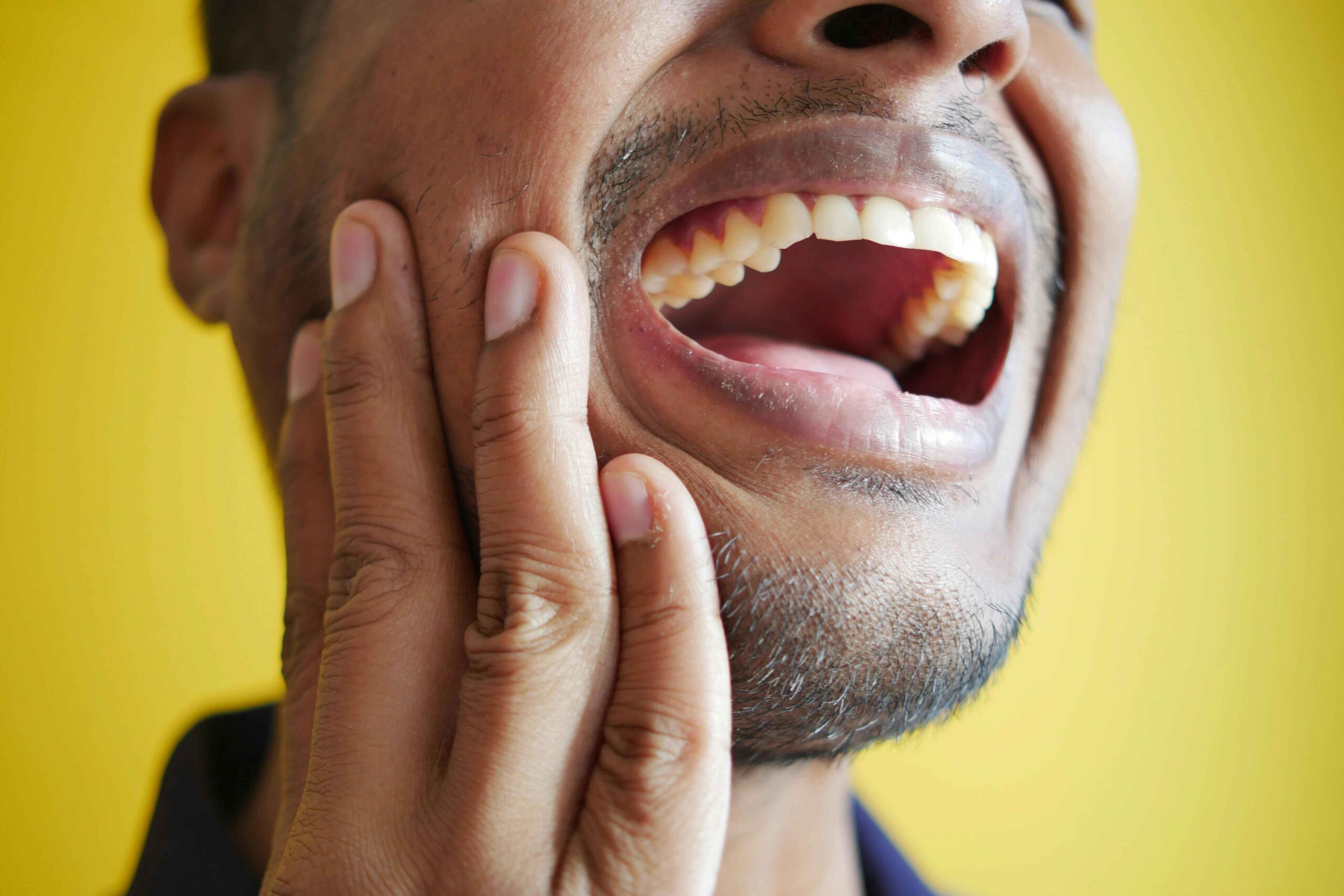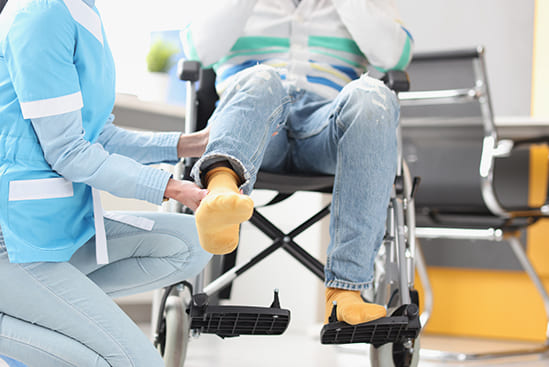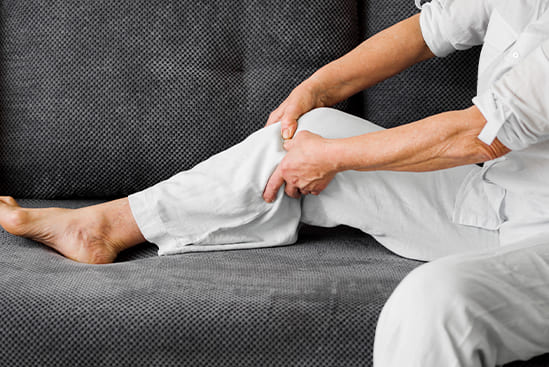
Synapse Physiotherapy
Introduction
If you’ve ever found yourself searching online for “physiotherapy near me” while struggling with nagging jaw pain, you’re not alone. Jaw pain can significantly interfere with daily life, making it hard to chew, talk, or even yawn without discomfort. Often linked to a condition known as temporomandibular joint disorder (TMJ or TMD), this type of pain can become chronic if left untreated. Fortunately, physiotherapy offers a proven and effective approach to managing and relieving jaw pain.
When you’re looking for physiotherapy near me, it’s crucial to find a clinic that understands the intricate anatomy of the jaw and offers a personalised approach to treatment. Whether the pain is due to clenching, grinding, arthritis, or postural imbalances, a skilled physiotherapist can assess the root cause and develop a targeted plan to alleviate your symptoms.
In this article, we’ll explore what causes jaw pain, how physiotherapy helps, what to expect from treatment, and how to choose the right physiotherapist for your needs. If you’re tired of living with jaw pain, this guide is your first step toward finding real, lasting relief.
Understanding Jaw Pain and TMJ Disorders
The temporomandibular joint (TMJ) connects your jawbone to your skull and allows movements such as chewing, speaking, and yawning. When this joint becomes dysfunctional whether due to injury, muscle strain, poor posture, or dental issues it can result in a wide range of symptoms, including:
- Jaw pain or tenderness
- Clicking, popping, or grinding noises when opening or closing the mouth
- Limited range of motion
- Headaches
- Neck and shoulder tension
- Earaches or ringing in the ears
These symptoms can range from mildly annoying to severely debilitating. TMJ dysfunction affects both men and women, but is more common in women between the ages of 20 and 40.
How Physiotherapy Helps Relieve Jaw Pain
Many people associate physiotherapy with back or sports injuries; however, it’s also highly effective in treating jaw pain and TMJ dysfunction. Therefore, identifying the cause through a comprehensive assessment is key. Your physiotherapist will consider factors such as:
- Muscle tightness or imbalance
- Poor posture, particularly forward head posture
- Joint stiffness or misalignment
- Stress-related clenching or bruxism (grinding teeth)
Once the cause is identified, your physiotherapist will tailor a treatment plan that may include the following components:
1. Manual Therapy
Hands-on techniques are used to release tight muscles and improve joint mobility. This can include gentle massage around the jaw, neck, and shoulders to reduce tension.
2. Jaw Exercises
Specific exercises can strengthen and retrain the muscles around the jaw, improving alignment and movement. These exercises are often simple and can be done at home.
3. Postural Correction
Poor posture is a major contributor to jaw pain. Physiotherapists teach exercises and awareness techniques to improve neck and shoulder posture, reducing strain on the jaw.
4. Dry Needling or Myofascial Release
Some clinics offer dry needling or advanced soft tissue release to address deep muscle tightness that contributes to jaw dysfunction.
5. Education and Lifestyle Advice
Your therapist may provide advice on reducing habits that worsen TMJ symptoms, such as nail biting, chewing gum, or grinding teeth during sleep. In some cases, collaboration with a dentist may be recommended. You can explore our Pain Management services for further support.
What to Expect During a Physiotherapy Session
Your first session typically begins with a detailed history and physical examination. In addition to assessing your jaw’s movement, alignment, and muscle condition, your physiotherapist may also examine related areas like your neck, shoulders, and upper back.
Treatment usually starts on the first visit and may include a combination of manual therapy, stretches, and exercises. You’ll likely be given a home program to follow, which is key to maintaining progress between sessions.
Most people see noticeable improvements within a few weeks, especially when they follow their physiotherapist’s advice and stick with the recommended routine.
Choosing the Right “Physiotherapy Near Me” for Jaw Pain
Not all physiotherapists specialise in TMJ dysfunction, so it’s important to choose a clinic that has experience in treating jaw-related conditions. Here are a few things to look for when searching for effective physiotherapy near me:
- Experience with TMJ dysfunction: Ask if the clinic regularly treats jaw pain and what techniques they use.
- Multidisciplinary approach: Some cases benefit from collaboration with dentists, chiropractors, or psychologists clinics that offer this are a plus.
- Personalised treatment: Look for clinics that tailor their treatment plans based on your specific needs and lifestyle.
- Convenient location and hours: Consistency is key with physiotherapy, so find a place that fits your schedule and is easy to access.
If you’re located in the Klang Valley area, for example, clinics like Synapse Physiotherapy have a strong reputation for treating musculoskeletal issues, including TMJ disorders, with a holistic and evidence-based approach.
Home Remedies to Support Your Physiotherapy
While professional treatment is essential, there are also things you can do at home to support your recovery. Moreover, these simple steps can enhance your physiotherapy outcomes:
- Apply heat or ice to the affected area for 15–20 minutes to reduce pain and inflammation.
- Avoid hard or chewy foods, especially during flare-ups. Stick to soft foods that don’t strain your jaw.
- Practice stress management, such as mindfulness or breathing exercises, to reduce tension-related clenching.
- Stay consistent with your home exercises as prescribed by your physiotherapist.
These small changes can go a long way in supporting your body’s natural healing process.
Frequently Asked Questions (FAQs)
1. How long does it take to see results from physiotherapy for jaw pain?
Most patients notice improvements within a few weeks, especially when following the home program and attending sessions consistently.
2. Can I treat jaw pain with home exercises alone?
While home exercises are important, professional assessment and treatment are essential to address the root cause and ensure lasting relief.
3. Is jaw pain always caused by TMJ dysfunction?
Not always. Jaw pain can result from multiple issues, including dental problems, muscle strain, or postural imbalance. A physiotherapist can help identify the cause.
4. Will physiotherapy help with jaw clicking or popping?
Yes, targeted physiotherapy can help improve joint alignment and muscle function, often reducing or eliminating clicking and popping sounds.
5. Should I stop eating certain foods during TMJ flare-ups?
Yes, avoiding hard or chewy foods during flare-ups helps reduce strain on the jaw and promotes healing.
Final Thoughts
Jaw pain doesn’t have to be something you simply learn to live with. By searching for “physiotherapy near me” and finding the right clinic with expertise in TMJ dysfunction, you can take control of your health and start feeling better, often faster than you think.
Physiotherapy offers a safe, non-invasive, and effective way to treat jaw pain at its source rather than just masking the symptoms. Through a combination of hands-on techniques, exercises, and education, you’ll be empowered to manage your pain and prevent it from coming back.
So the next time your jaw starts to ache, don’t ignore it. Reach out to a local clinic like Synapse Physiotherapy and take the first step toward lasting relief. Your jaw and your peace of mind will thank you.
Tags :

Back & Neck Pain
Conditions such as stiffness, postural abnormalities and muscle overuse from prolonged desk work at the office or home is more prevalent than most would think. We provide the necessary tools to fix you up and educate you on ergonomics which can unload unnecessary stress.
- Spine & Core Rehabilitation
- Strength & Conditioning Programme
- Pain Management
- Biomechanical Assessment
- Sports Physiotherapy
- Group Class

Sports Injuries
Rolled ankles, jarred knees, impinged shoulders are few conditions in the plethora of sports injuries which can hamper performance and limit our enjoyment of sports. Physiotherapy not only treats the symptoms of these conditions but propels your overall fitness to greater heights.
- Strength & Conditioning Programme
- Pain Management
- Biomechanical Assessment
- Sports Physiotherapy
- Shockwave Therapy
- Group Class

Work Desk Injuries
Conditions such as stiffness, postural abnormalities and muscle overuse from prolonged desk work at the office or home is more prevalent than most would think. We provide the necessary tools to fix you up and educate you on ergonomics which can unload unnecessary stress.

Pre-Post-Surgical Conditions
Surgery involves going through preparation both before and after. Physiotherapists play a vital role in getting your body ready for surgeries with circulatory, breathing and strengthening exercises. After the procedure, let us be there for your recovery and rehabilitation, taking it one step at a time.

Scoliosis & Postural Abnormalities
The way we stand, sit, walk and sleep has influence over our posture and the overall balance of muscles controlling its alignment. A comprehensive screening can be done by our physiotherapists to detect abnormalities, which we will aid in correcting.

Neurological Conditions
Neurological disabilities such as stroke, nerve compression and neuropathies can be barriers for patients to live life to its fullest. We at Synapse are committed to help you overcome these hurdles by ensuring functional mobility and quality of life is at its optimum by providing the right treatment and exercises.

Osteoarthritis & Rheumatism
Joint degeneration and inflammation happens as the human body grows older, but that does not mean our way of life degenerates as well. Relief your joint pains with a joint effort together with your physiotherapist, who will provide pain-relief treatments and prescribe exercises for your wellbeing.

Conditions Relating To Elderly
Common conditions in the older age population include hips & knee pain, back & neck pain, osteoarthritis, rheumatism, fear of falling and many more. Aging and degeneration of bodily function is inevitable, but here at Synapse, we will help you live the best of your life.

Home Physiotherapy
We understand that some conditions or injuries can make it difficult to receive rehabilitation at our clinic be it mobility or transportation issues. Our objective is to provide you with the same high-quality physiotherapy services at home that you would receive in-clinic.
